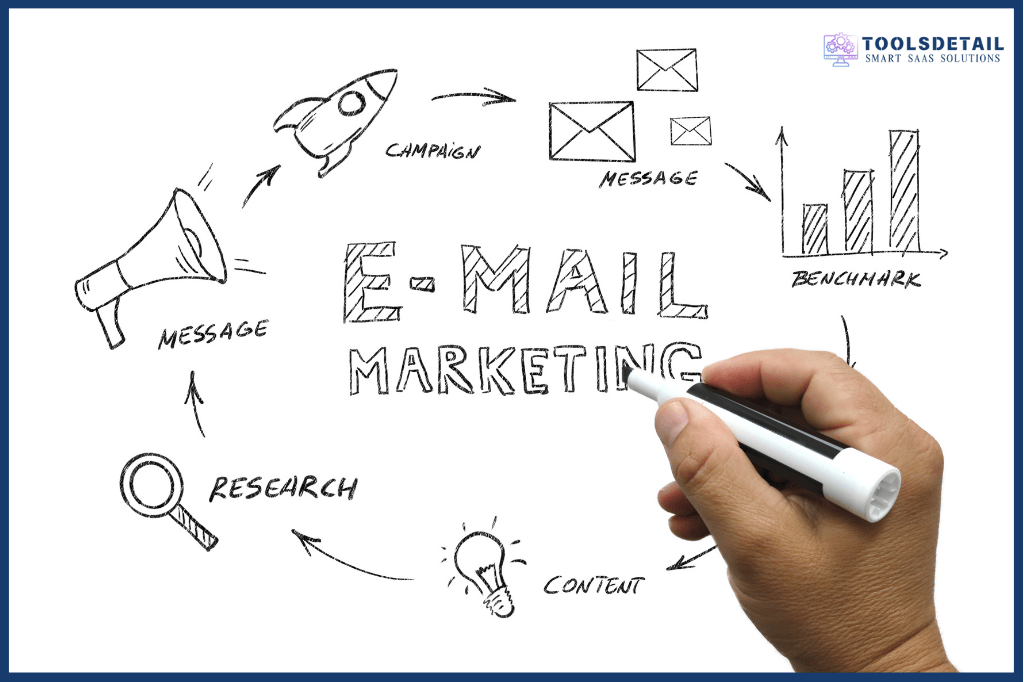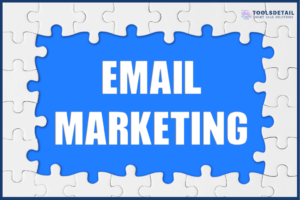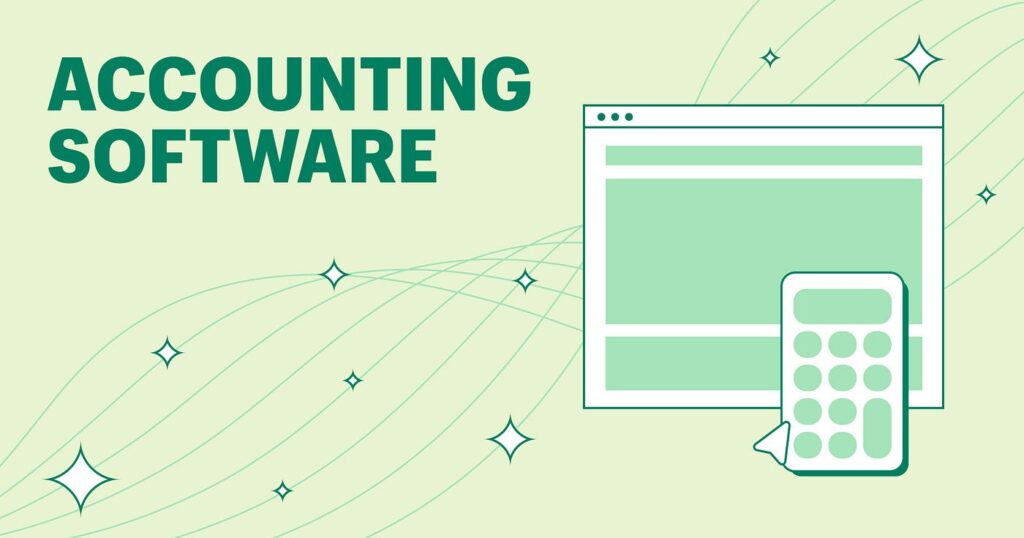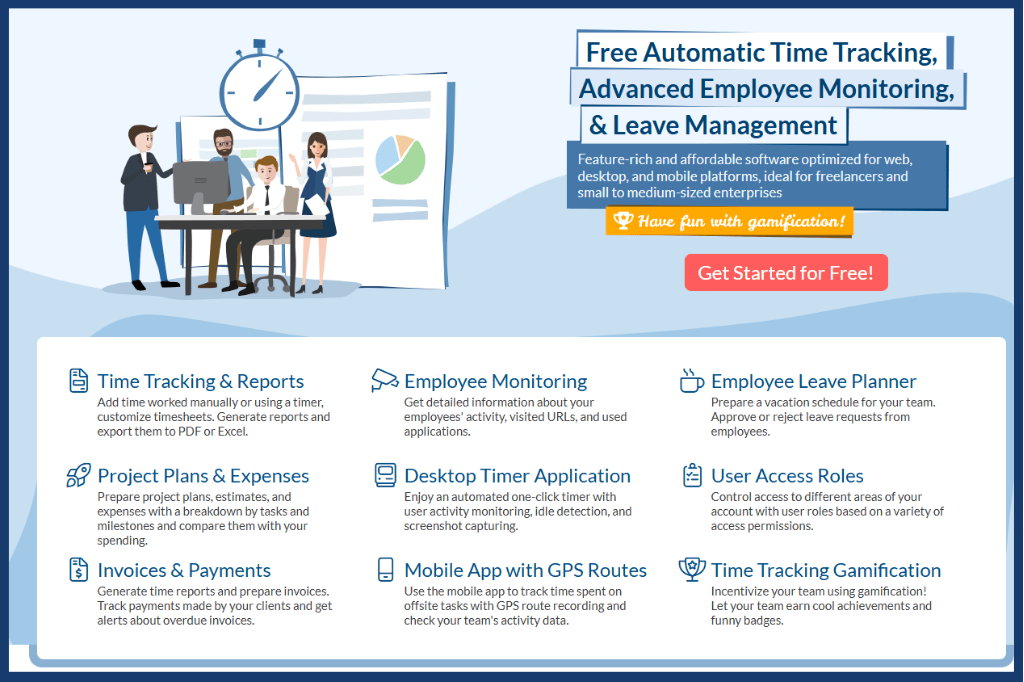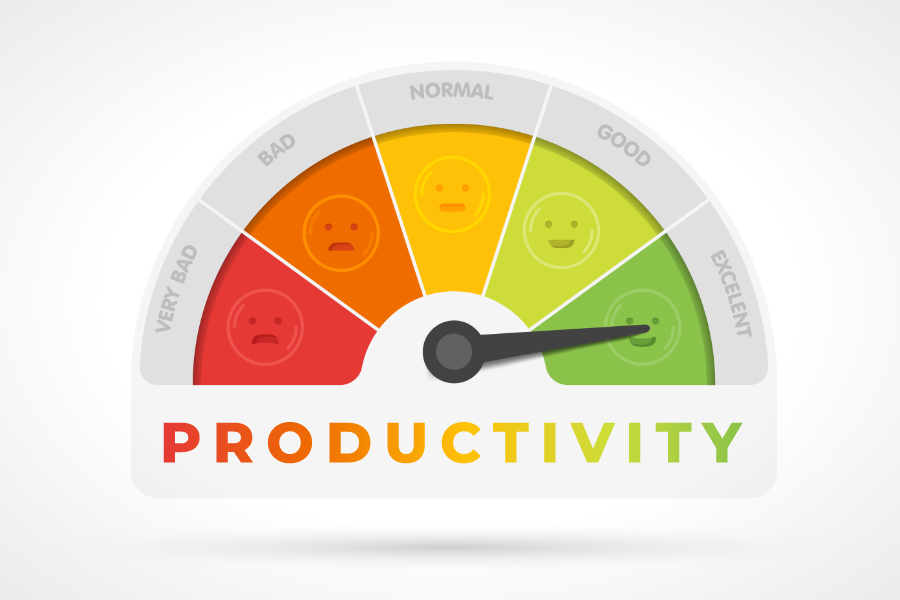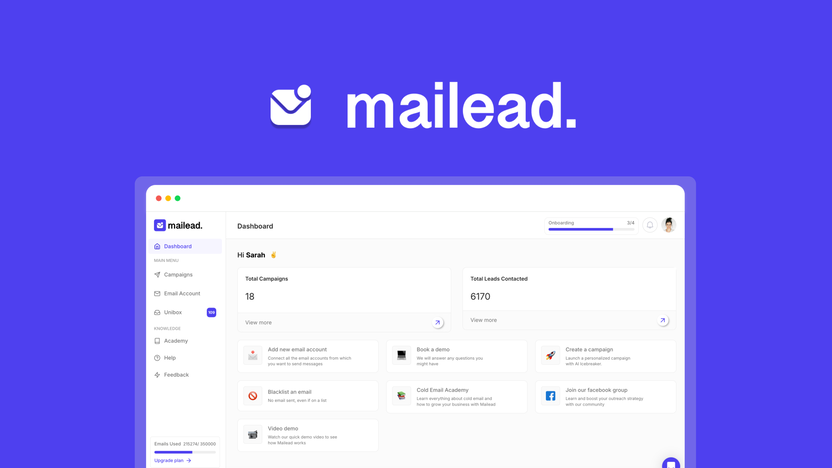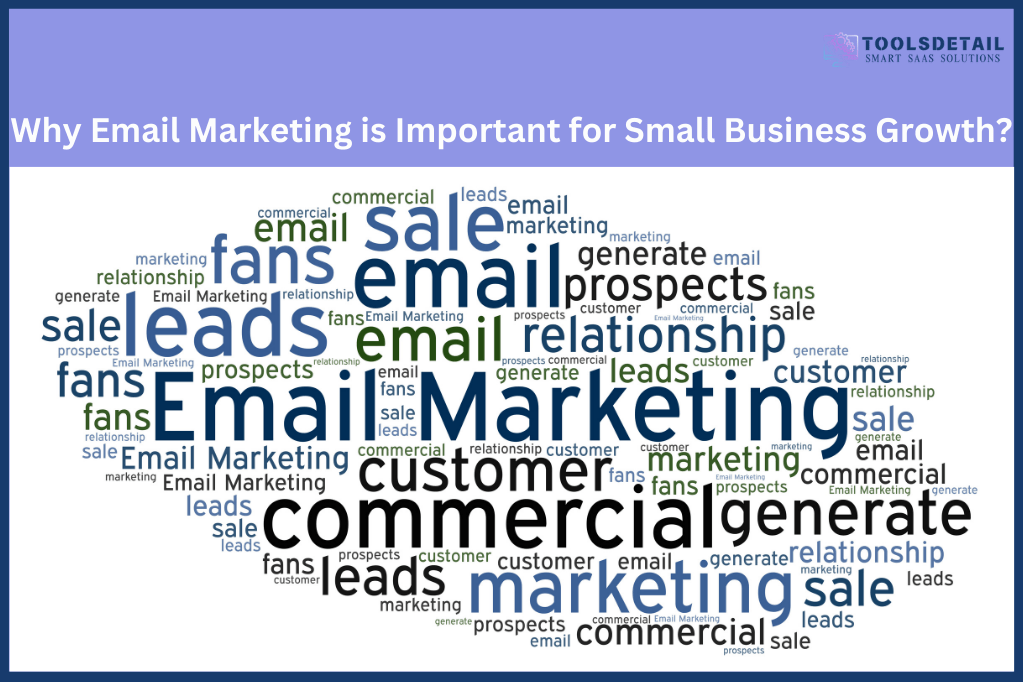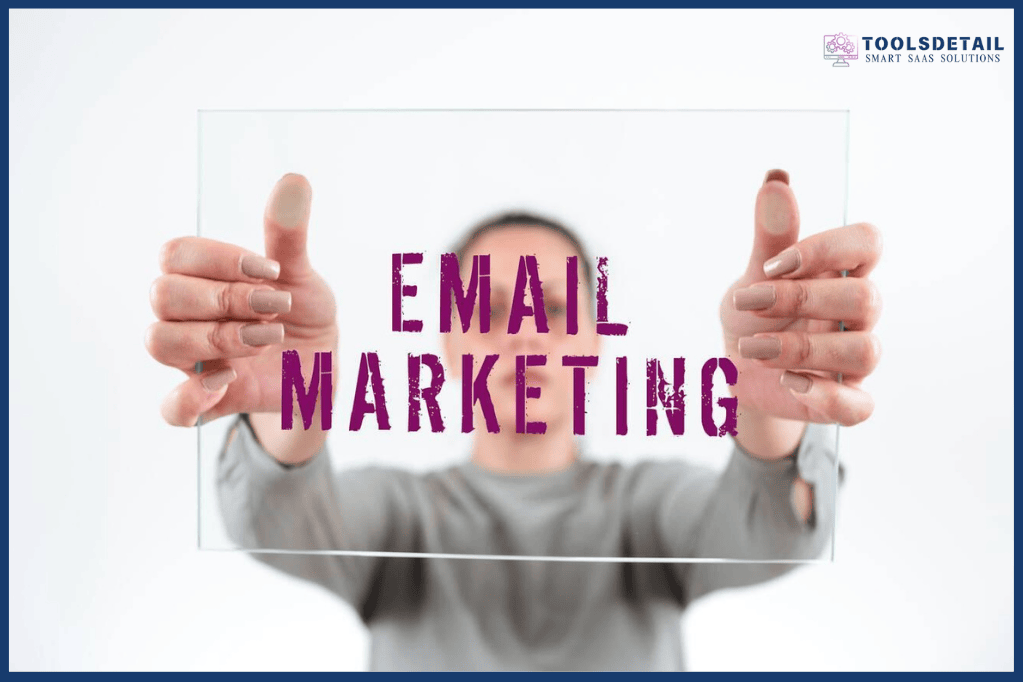Email marketing is a powerful tool for businesses. It helps connect with customers directly.
In a digital age filled with noise, email marketing stands out as an essential strategy for reaching audiences. It’s affordable, direct, and highly effective. Small businesses and large corporations alike use email marketing to keep their customers informed, engaged, and loyal.
Emails can deliver personalized messages, build relationships, and drive sales. This makes email marketing an indispensable part of any marketing plan. Understanding its importance helps businesses grow and succeed. So, why exactly is email marketing so important? Let’s explore the reasons that make email marketing a must-have in today’s digital world.
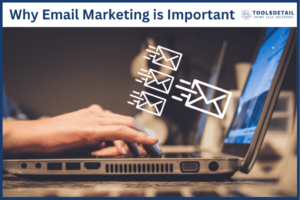
Email Marketing Basics
Email marketing is a powerful tool for businesses to connect with their audience. It involves sending emails to customers and potential customers. This helps in building relationships, promoting products, and driving sales. Understanding the basics of email marketing can help you create effective campaigns that engage and convert your audience.
What Is Email Marketing?
Email marketing is the practice of sending commercial messages to a group of people via email. It is a direct form of communication where businesses can reach their customers and prospects. These messages can be used for various purposes such as:
- Promoting products or services
- Sharing news and updates
- Providing valuable content
- Encouraging customer loyalty
Emails can be personalized to address the specific needs and interests of your audience. This helps in creating a more meaningful connection with your customers. Email marketing is cost-effective and has a high return on investment (ROI). It allows businesses to track the performance of their campaigns, making it easier to measure success and make improvements.
Here are some common types of email marketing campaigns:
| Type | Description |
|---|---|
| Newsletter | Regular updates sent to subscribers |
| Promotional | Emails that promote products or special offers |
| Transactional | Emails sent after a customer action (e.g., purchase confirmation) |
| Welcome | Emails sent to new subscribers |
Key Components
Successful email marketing campaigns consist of several key components. Each plays a crucial role in ensuring your messages are effective and well-received by your audience.
Subject Line: The subject line is the first thing recipients see. It should be catchy and relevant to encourage opening the email. Keep it short and to the point.
Personalization: Personalizing emails with the recipient’s name or other details can make the message feel more tailored and engaging. This can be done using data from your email list.
Content: The content of your email should be clear and concise. Use engaging language and ensure the message aligns with the subject line. Include images and links to make it more interactive.
Call to Action (CTA): Every email should have a clear CTA. This tells the recipient what action to take next, whether it’s visiting your website, making a purchase, or signing up for an event.
Design: A well-designed email is visually appealing and easy to read. Use a clean layout, appropriate fonts, and colors that match your brand. Ensure the design is mobile-friendly, as many people check emails on their phones.
Segmentation: Dividing your email list into segments allows you to send more targeted messages. Segmentation can be based on factors such as demographics, purchase history, or engagement levels.
Analytics: Tracking the performance of your email campaigns is essential. Use metrics like open rates, click-through rates, and conversions to measure success and identify areas for improvement.
Direct Communication Channel
Email marketing is an essential tool for businesses. It offers a direct communication channel that connects companies with their audience. This channel helps in building strong relationships and driving conversions. The direct communication channel allows brands to reach their customers personally and effectively.
Personal Connection
Email marketing helps businesses create a personal connection with their audience. By using personalized communication, companies can address customers by their names and tailor content to their preferences. This makes customers feel valued and appreciated.
Here are some email marketing benefits for personal connection:
- Customer Retention: Personalized emails keep customers engaged and loyal to your brand.
- Lead Nurturing: Personalized emails help in nurturing leads by providing relevant information.
- Brand Loyalty: Customers are more likely to stay loyal to a brand that understands their needs.
Creating a personal connection also improves conversion rates. When customers receive relevant and valuable content, they are more likely to take action. This could be purchasing a product, signing up for a service, or engaging with the brand in other ways.
Here’s a simple table showing the benefits of personalized communication:
| Benefit | Impact |
|---|---|
| Customer Retention | Increases loyalty and repeat business |
| Lead Nurturing | Helps convert leads into customers |
| Brand Loyalty | Strengthens customer relationships |
| Conversion Rates | Boosts sales and engagement |
Targeted Messaging
Targeted messaging is another key feature of email marketing. With audience segmentation, businesses can divide their audience into different groups based on various criteria such as age, location, and interests. This allows for more relevant and effective communication.
Here are some ways targeted messaging benefits businesses:
- Improved Customer Engagement: Segmented emails are more likely to be opened and read.
- Higher Roi Of Email Campaigns: Targeted emails often result in better returns on investment.
- Efficient Marketing Automation: Automated emails can be customized for different audience segments.
Segmenting your audience ensures that each customer receives content that is relevant to them. This leads to higher engagement and better results from your email campaigns.
Consider the following table that shows the impact of targeted messaging:
| Benefit | Impact |
|---|---|
| Customer Engagement | Higher open and click-through rates |
| ROI Of Email Campaigns | Better returns on marketing spend |
| Marketing Automation | More efficient and personalized campaigns |
Email marketing, with its direct communication channel, helps businesses connect with their customers on a personal level. It also enables targeted messaging, which improves engagement and conversion rates.
Cost-effectiveness
Email marketing is a powerful tool for businesses. One of its biggest benefits is cost-effectiveness. This makes it an attractive choice for companies of all sizes. Through email marketing, businesses can reach a wide audience without spending a lot of money. This section will explore how email marketing can be a low-cost strategy with high ROI potential.
Low Cost Strategy
Email marketing is one of the most affordable marketing strategies. Unlike traditional advertising methods, email campaigns do not require large budgets. Here are some reasons why:
- No printing or postage costs
- No need for physical materials
- Low software and platform fees
- Minimal personnel costs
Businesses can use email marketing tools that offer various pricing plans. Some even provide free tiers for small businesses. This allows companies to start email marketing with minimal investment.
Let’s look at a simple cost comparison:
| Marketing Method | Estimated Cost |
|---|---|
| Email Marketing | $10 – $50 per month |
| Direct Mail | $500 – $1,000 per campaign |
| Print Advertising | $1,000 – $5,000 per ad |
As shown in the table, email marketing is much cheaper. This makes it accessible to businesses with limited budgets. Companies can reach thousands of customers with a single email campaign. This level of reach would be very expensive with other methods. Email marketing’s low cost makes it a smart choice for businesses looking to maximize their marketing budget.
High Roi Potential
Email marketing is known for its high return on investment (ROI). This means that businesses can earn a lot more money than they spend on email campaigns. Here are some key factors that contribute to high ROI:
- Targeted audience
- Personalized content
- Automated campaigns
- Measurable results
Email marketing allows businesses to segment their audience. This means sending relevant content to different groups of people. Personalized emails have higher open rates and click-through rates. This leads to more conversions and higher sales.
Automated campaigns save time and ensure timely delivery of emails. These include welcome emails, follow-ups, and special offers. Automation helps maintain customer engagement without extra effort.
Measurable results are another advantage. Businesses can track open rates, click rates, and conversion rates. This data helps improve future campaigns. Email marketing platforms provide detailed analytics. These insights help businesses understand what works and what doesn’t.
Let’s look at average ROI for different marketing methods:
| Marketing Method | Average ROI |
|---|---|
| Email Marketing | $42 for every $1 spent |
| Social Media Marketing | $10 for every $1 spent |
| Direct Mail | $7 for every $1 spent |
Email marketing’s high ROI makes it a valuable tool. Businesses can achieve impressive results with minimal investment. This makes email marketing essential for any business looking to grow.
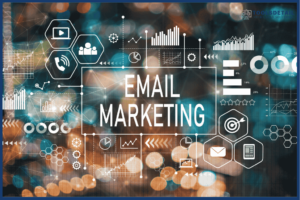
Builds Customer Relationships
Email marketing is a powerful tool for building strong customer relationships. It allows businesses to communicate directly with their audience. This helps in fostering trust and loyalty. Through targeted and personalized messages, businesses can keep their customers engaged and informed. Let’s dive into how email marketing nurtures leads and builds customer loyalty.
Nurturing Leads
Email marketing is essential for nurturing leads. It guides potential customers through the sales funnel. Here’s how it works:
- Personalized Content: Sending relevant content based on user behavior and preferences.
- Consistent Communication: Regular emails keep your brand top of mind.
- Educational Content: Providing valuable information helps build trust.
Consider this example: A potential customer visits your website and subscribes to your newsletter. You can send them a welcome email with an overview of your services. Follow up with emails that provide tips and insights related to their interests. This keeps them engaged and gradually moves them closer to making a purchase.
Here’s a simple table to illustrate the process:
| Stage | Email Content |
|---|---|
| Awareness | Welcome email, introductory content |
| Consideration | Case studies, customer testimonials |
| Decision | Special offers, product demos |
Customer Loyalty
Building customer loyalty is another key benefit of email marketing. Loyal customers are valuable assets. They are more likely to make repeat purchases and refer your business to others. Here are some ways email marketing fosters loyalty:
- Exclusive Offers: Reward your loyal customers with special discounts and offers.
- Personalized Recommendations: Suggest products based on their purchase history.
- Engaging Content: Share behind-the-scenes stories or upcoming product launches.
For instance, a customer who regularly buys from your store can receive a special birthday discount. You can also send them personalized product recommendations based on their past purchases. This makes them feel valued and appreciated.
In summary, email marketing helps in keeping your customers close. By sending tailored and timely messages, you ensure that your customers remain engaged with your brand. This builds a strong and lasting relationship that benefits both your customers and your business.
Measurable Results
Email marketing remains one of the most effective digital marketing strategies. It offers measurable results, allowing businesses to understand their efforts’ impact. By tracking performance and analyzing data, companies can optimize their campaigns for better outcomes. Let’s explore how measurable results in email marketing can elevate your strategies.
Tracking Performance
Tracking performance is vital in email marketing. It helps you understand how your email campaigns are performing. Key metrics to monitor include open rates, click-through rates, and conversion rates. These metrics provide insights into your audience’s engagement with your content.
Here are some essential metrics to track:
- Open Rates: The percentage of recipients who open your email. High open rates indicate your subject lines are compelling.
- Click-Through Rates (CTR): The percentage of recipients who click on links within your email. This shows how engaging your email content is.
- Conversion Rates: The percentage of recipients who complete a desired action, like making a purchase or signing up for a webinar. This measures the effectiveness of your email in driving actions.
Using email analytics tools, you can track these metrics easily. These tools provide real-time data, helping you make informed decisions. For instance, if your open rates are low, you can test different subject lines. If your CTR is not satisfactory, you might need to improve your content or call-to-action (CTA).
Here’s a simple table showing how you can track performance metrics:
| Metric | Description | Actionable Insights |
|---|---|---|
| Open Rate | Percentage of emails opened | Improve subject lines |
| CTR | Percentage of clicks on email links | Enhance email content |
| Conversion Rate | Percentage of desired actions completed | Optimize CTAs |
Analyzing Data
Analyzing data from your email campaigns is crucial for continuous improvement. With detailed email analytics, you can gain insights into your audience’s behavior. This helps in creating more personalized content and targeted messaging.
Here are some key aspects of data analysis:
- Audience Segmentation: Divide your email list into segments based on demographics, behavior, or preferences. This allows you to send more relevant content to each group.
- Customer Engagement: Analyze engagement metrics to understand what type of content resonates with your audience. Higher engagement often leads to better subscriber retention.
- ROI: Measure the return on investment of your email campaigns. This helps you see the financial impact and justify your marketing spend.
Marketing automation tools can also help in analyzing data. These tools track user interactions and provide comprehensive reports. You can see which emails perform best and identify trends over time. For example, if one type of email consistently has high conversion rates, you can create similar campaigns.
By analyzing data, you can make data-driven decisions. This ensures your email marketing efforts are effective and aligned with your business goals.
Increased Brand Awareness
Email marketing is a powerful tool in the digital marketing arsenal. It helps businesses reach their customers directly. One significant benefit of email marketing is increased brand awareness. By consistently engaging with your audience, you can keep your brand top-of-mind. This helps build a strong, recognizable presence in the market.
Consistent Branding
Consistent branding through email marketing is essential. It ensures that your audience recognizes your business across all communications. Here are key points to consider:
- Logo and Colors: Use your logo and brand colors in every email. This helps in immediate recognition.
- Typography: Stick to the same fonts and styles. This creates a cohesive look.
- Message Tone: Keep your tone of voice consistent. Whether it’s friendly or formal, it should reflect your brand.
Here’s a simple table to illustrate the elements of consistent branding:
| Element | Consistency Tips |
|---|---|
| Logo | Include in every email |
| Colors | Use brand colors |
| Typography | Stick to brand fonts |
| Message Tone | Maintain a consistent voice |
Keeping these elements consistent helps in creating a strong brand identity. Your audience will begin to recognize and trust your brand more. Consistency builds familiarity, and familiarity builds trust.
Engaging Content
Engaging content is crucial for email marketing success. Your emails should capture your audience’s attention and keep them interested. Here are some tips:
- Personalization: Use the recipient’s name. Tailor the content to their interests.
- Clear Call-to-Action: Make it obvious what you want the reader to do next. Use buttons and links.
- Visual Appeal: Include images, graphics, and videos. These can make your emails more attractive.
Consider this example of engaging content:
- Subject Line: “Exclusive Offer Just for You, [Name]!”
- Opening Line: “Hi [Name], we have a special offer you’ll love.”
- Body Content: “Check out our latest collection. Click the button below to shop now.”
- Call-to-Action Button: “Shop Now”
Engaging content also means providing value. Share tips, guides, or exclusive offers. Make your audience feel special. This keeps them opening and reading your emails. Engaged subscribers are more likely to become loyal customers.
Automation Benefits
Email marketing is a vital strategy for businesses today. One of the biggest advantages is automation. Automation benefits transform how businesses engage with their audience, making the process more efficient and effective. Let’s explore the key aspects of automation in email marketing.
Time-saving Tools
Automation tools save time by handling repetitive tasks. This allows businesses to focus on more strategic activities. Here are some key points:
- Scheduled Emails: Set up emails to be sent at specific times.
- Drip Campaigns: Send a series of emails based on user actions.
- List Segmentation: Automatically group contacts based on behavior and preferences.
These tools streamline the process:
| Tool | Benefit |
|---|---|
| Scheduled Emails | Ensures timely delivery |
| Drip Campaigns | Engages users over time |
| List Segmentation | Personalizes messages |
Businesses can set up these tools once and let them run. This saves countless hours every week. Automation tools help maintain consistent communication with customers. This builds stronger relationships and improves customer retention.
Efficient Campaigns
Automation ensures email campaigns are more efficient. Businesses can target the right audience at the right time. Here are some benefits:
- Personalized Messages: Tailor content to individual preferences.
- Behavior Tracking: Monitor how users interact with emails.
- Triggered Emails: Send emails based on user actions, like abandoned carts.
These features lead to more effective campaigns:
| Feature | Impact |
|---|---|
| Personalized Messages | Higher engagement rates |
| Behavior Tracking | Better understanding of audience |
| Triggered Emails | Increased conversions |
Efficient campaigns maximize resources and improve ROI. Automation allows for detailed tracking and analysis. Businesses can adjust their strategies based on real-time data. This leads to continuous improvement and better results over time.
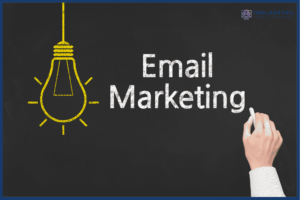
Integration With Other Channels
Email marketing is a powerful tool in the digital marketing toolkit. Its true strength lies not only in its direct impact but in its ability to integrate seamlessly with other channels. Combining email marketing with social media, for instance, can amplify your reach and boost your ROI of email marketing efforts. This integration can enhance your overall marketing strategy, helping you achieve higher conversion rates and increased brand loyalty.
Social Media Synergy
Social media synergy is essential for maximizing the effectiveness of your email campaigns. When you integrate your email marketing with social media, you can create a more cohesive digital marketing strategy. Here are some ways to achieve this synergy:
- Share Email Content on Social Media: Promote your email newsletters and campaigns on your social media platforms. Encourage your followers to sign up for your email list to receive exclusive content and offers.
- Use Social Media to Grow Your Email List: Run social media contests or giveaways that require participants to provide their email addresses. This helps you grow your email list while engaging your audience on social platforms.
- Integrate Social Sharing Buttons in Emails: Include social sharing buttons in your emails to make it easy for recipients to share your content on their social media profiles. This increases the reach of your email content.
By leveraging social media synergy, you can enhance customer engagement and lead nurturing. This integrated approach helps you reach a broader audience and strengthens your brand’s presence across multiple channels.
Cross-promotion Strategies
Cross-promotion strategies are vital for maximizing the ROI of email marketing. These strategies involve promoting your email campaigns through various channels to increase visibility and engagement. Here are some effective cross-promotion strategies:
- Promote Email Sign-Ups on Your Website: Place sign-up forms on your website’s homepage, blog, and other high-traffic pages. This encourages visitors to subscribe to your email list.
- Collaborate with Influencers: Partner with influencers in your industry to promote your email campaigns. Influencers can help you reach a larger audience and boost your conversion rates.
- Utilize Paid Advertising: Invest in paid advertising, such as Google Ads or Facebook Ads, to promote your email sign-ups. Targeted ads can help you reach potential subscribers who are interested in your products or services.
Cross-promotion strategies also benefit from audience segmentation and personalized messaging. By tailoring your email content to specific audience segments, you can increase the effectiveness of your campaigns. Marketing automation tools can help streamline this process, making it easier to send targeted emails to different segments of your audience.
Effective cross-promotion ensures that your email marketing efforts are visible across multiple channels, increasing your chances of reaching and engaging potential customers.
Frequently Asked Questions
What Is Email Marketing?
Email marketing involves sending promotional messages to a group of people using email. It helps businesses communicate with customers, promote products, and build customer loyalty.
Why Is Email Marketing Effective?
Email marketing is effective because it allows direct communication with customers. It can be personalized, targeted, and measured, making it a powerful marketing tool.
How Does Email Marketing Boost Sales?
Email marketing boosts sales by promoting products directly to potential customers. Personalized offers and targeted campaigns can increase conversion rates and drive sales.
What Are The Benefits Of Email Marketing?
Email marketing offers benefits like increased reach, personalized communication, cost-effectiveness, and measurable results. It helps build customer relationships and drive sales.
Conclusion
Email marketing remains a vital tool for businesses today. It boosts customer engagement. It drives traffic to your website. It nurtures leads effectively. It also offers a high return on investment. Simple and cost-effective, email marketing is hard to beat.
Start crafting your email strategy now. Reap the benefits of this powerful marketing tool.

